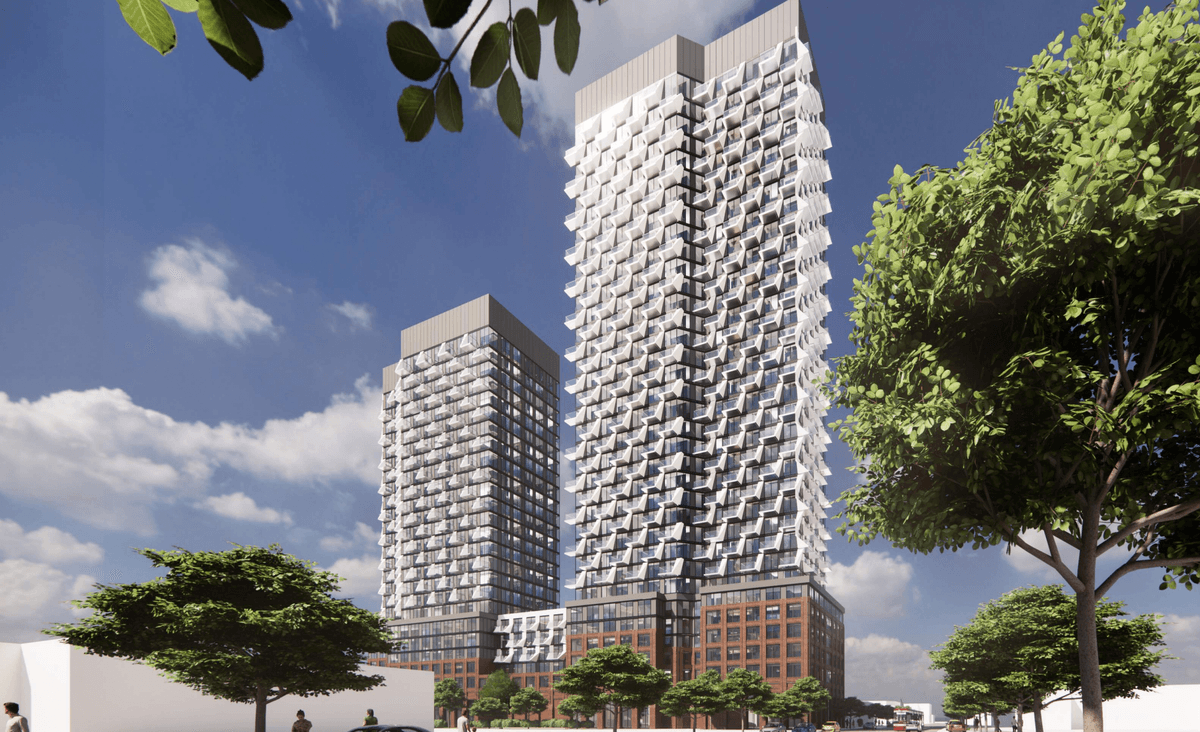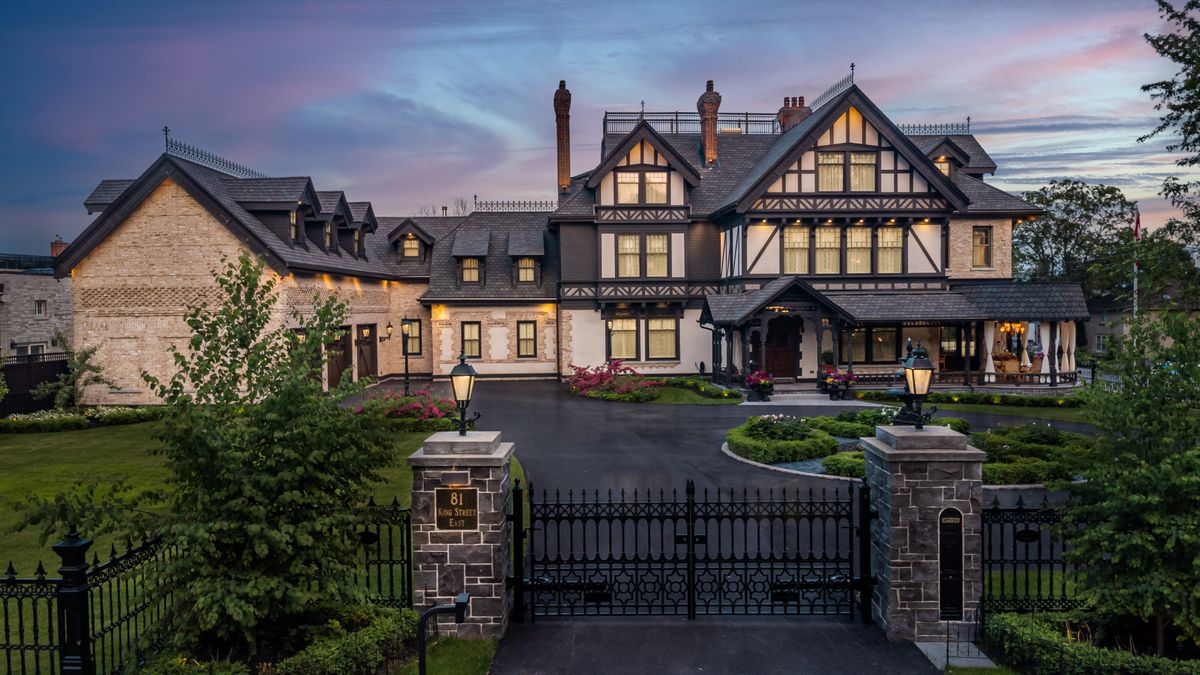Whether it was due to mortgage rates, vaccine implementation, or just something in the water, December saw Toronto's condo market activity soar to new heights.
The sector -- hardest hit by COVID-19's fallout -- saw 2,193 sales in the GTA, making up 30.5% of the month’s total sales and, most notably, marking a 75.4% jump over the same month in 2019.
In early November, we cautioned downtown condo investors (and, really, anyone interested in jumping into the sector) that the time was not ideal to strike, but instead to watch and wait.
A mere two months later, it seems, patience has proven itself a virtue, and industry insiders expect the trend will carry on in the months to come.
READ: Market Watch: December Data Hints at the Condo Sector’s Revival
"The condo market turned around, literally, in a span of six weeks," says John Pasalis, President at Realosophy Realty.
"It's interesting: October, things were sluggish; early November, things were sluggish; and then, all of a sudden, what we're seeing anecdotally -- and we're going to try to quantify this with data -- is there's a strong demand and return from investors who saw the decline in prices downtown as an opportunity to jump in."
Zeroing in closer on the shifts seen at the year's end, Pasalis posted to Twitter about weekly year-over-year increases in condo sales for the GTA. A slow climb was evident from November 15 onward, showing small jumps from -11% to 5%, and then from 9% to 23% and 31%.
But the December 20 show of 72% blew the prior weeks out of the water:
At the time, a little less than two months' passing saw the market's MOI drop from 3 to 2, alongside what Pasalis called "modest price growth."
Looking at the GTA's resale market at large, the Toronto Regional Real Estate Board (TRREB) says 95,151 overall sales were reported in 2020 — an 8.4% increase from 2019. This was boosted by a record result for the month of December, in which 7,180 homes exchanged hands — an impressive 64.5% increase from the year prior. TRREB also noted that after a “pronounced dip” in market activity between mid-March and the end of May, market conditions did improve dramatically in the second half of the year, with multiple consecutive months of record sales and average selling prices.
Zooming more closely into the 416, and focusing on condo sales specifically, 2020 saw year-over-year changes as follows:
- January +9.7%
- February +26.2%
- March +4.2%
- April -69.9%
- May -58%
- June = -13.6%
- July = +4.7%
- August = +9.2%
- September = +7%
- October = -8.5%
- November = +0.8%
- December = +75.9%
After a series of unspectacular changes for the first few months of the year, April saw activity plummet -- a direct response to COVID-19 and its impacts reaching Toronto. May suffered nearly as much, and June saw a slight recovery but stayed below the sales data of the year prior. Further ups and downs presented themselves from July through October. Then, from one month to the next, November and December were worlds apart, with year-over-year growth of 0.8% and 75.9% respectively.
Driving Factors
"My feeling is, [the surge in condominium sales is being] largely driven by demand from investors who are jumping in, not necessarily end-users or [people] buying a first-time condo," Pasalis also says. "It's a combination of a lot of factors. Number one is that prices are down from their peak. They're down about 10%, so investors see that as an opportunity. Mortgage rates are well below 2%, which also makes investing very attractive, and then the idea that the vaccine's going to be rolled out... I think that makes investors feel more confident that this sluggish rental market is not going to extend too far out."
It's that last point -- the one referencing the vaccine that recently hit Canadian soil -- that Ron Butler, founder of Butler Mortgage, sees as integral.
"Nothing since the start of COVID in March of 2020 has effected the downtown Toronto condo market more than the recent announcement of a vaccine," he says. "As if by magic, deep concern over falling rents and likely falling values vanished. The fact that there is now a definite timeline for the return to urban living means condo owners and condo investors can choose to wait until the market returns to normal."
According to Toronto realtor and chartered accountant Scott Ingram, both Pasalis' and Butler's mentions of "investors" are right on the money, so to speak.
"Anytime you're dealing with big swings in the condo market (e.g. rapid increase in new listings), my prime suspect is always 'investors,'" Ingram says. "I'm seeing a lot of activity this week, and seems like the market has shot right out of the gate this year, very similar to how last year started, pre-COVID."
When asked about the potential impact of mortgage rates on the influx of action, Ingram said it was difficult to gauge. "Those haven't really moved much," he said, while noting the same uncertainty about the vaccine. "Hard to say," he said, "but it could only have helped confidence."
Prices Lag Behind
Despite the significant jump in condo sales, prices haven’t caught up just yet. With an average price of $600,840 in December, condo prices were down 2% from December 2019. That’s a drop of -4.7% in the 416, alongside a rise of 6.3% in the 905 region.
In November, too, the 905 condo market outperformed Toronto in price, rising 4.8% to an average of $533,984, compared to a 3% decrease in the city that dropped its average to $640,208.
“While the housing market as a whole recovered strongly in 2020, there was a dichotomy between the single-family market segments and the condominium apartment segment. The supply of single-family homes remained constrained resulting in strong competition between buyers and double-digit price increases. In contrast, growth in condo listings far-outstripped growth in sales,” said Jason Mercer, TRREB's Chief Market Analyst.
“Increased choice for condo buyers ultimately led to more bargaining power and a year-over-year dip in average condo selling prices during the last few months of the year.”
And while the expectation is that interest in the condo sphere will continue as 2021 rolls on, it's uncertain when price rises will catch up with an increase in demand.
"I don't know how quickly prices are going to rise," Pasalis says. "I don't know if investors are going to want to compete with, you know, five other buyers. But, definitely, I think we're going to continue to see a lot of interest from investors heading into the new year.
Looking Ahead
But it's the prices hanging low -- at least for now -- that could actually bolster continued activity in the condo sphere, according to a new report from RBC.
"Downtown condo prices still bucked the trend due to ample inventories in Canada’s largest cities—the downturn in the rental market has prompted many condo investors to sell," the document explains; (a truth that, for those with their ear to the ground over the last several months, has long been clear).
"Active listings were up 159% in the GTA, and 172% in the 416 area alone. Yet it was condo sales that caught our attention. They surged 75% y/y (with similar advances in both the 416 and 905 areas), suggesting buyers were out in full force looking for bargains."
In the GTA specifically, where condo prices rose a relatively-subdued 2.4% year-over-year, RBC says still-significant inventories were reflected.
"Softer condo prices are now drawing more buyers in. Existing condo sales soared virtually everywhere in December. We expect condos’ growing affordability advantage over single-detached homes will boost demand in 2021."
Experienced real estate agent Scott Shallow certainly thinks so.
"A situation in downtown Toronto where small condos drop 10-15% this quickly is not going to happen again – outside of another major financial or medical emergency."
Shallow believes condo action will ignite this spring. Once the "condo market is heating up everyone will jump in," he says. "With the discount in prices and the interest rates, people will run to the market... It will be one of the wildest markets we’ve seen."
As they say, only time will tell if the Toronto condo market makes a complete recovery -- but according to the experts above, we won't have to wait long to find out.
With files from Ainsley Smith.





















